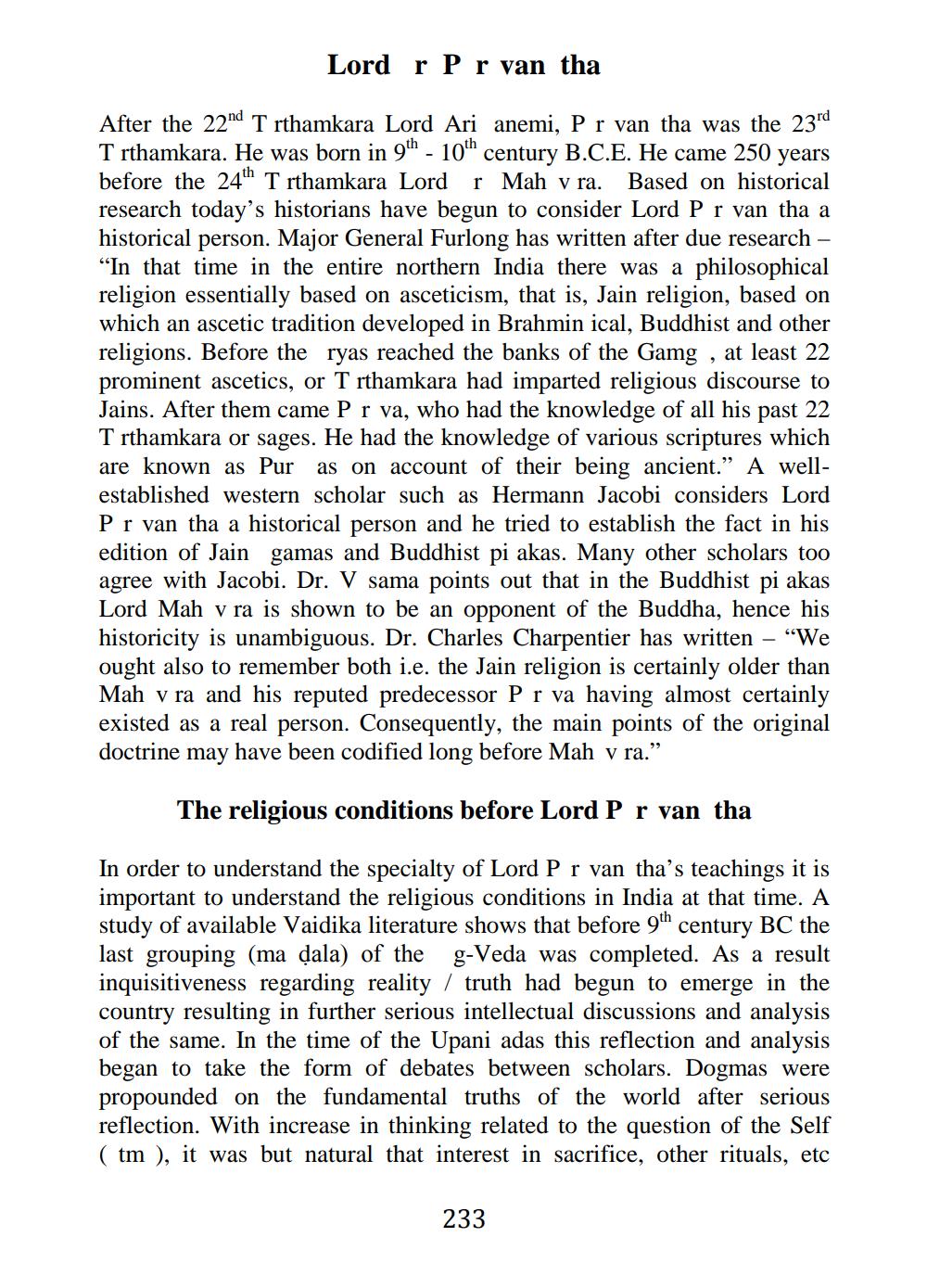________________
Lord r P r van tha
After the 22nd T rthamkara Lord Ari anemi, Pr van tha was the 23rd T rthamkara. He was born in 9h - 10th century B.C.E. He came 250 years before the 24" T rthamkara Lord r Mah v ra. Based on historical research today's historians have begun to consider Lord P r van tha a historical person. Major General Furlong has written after due research - “In that time in the entire northern India there was a philosophical religion essentially based on asceticism, that is, Jain religion, based on which an ascetic tradition developed in Brahmin ical, Buddhist and other religions. Before the ryas reached the banks of the Gamg , at least 22 prominent ascetics, or T rthamkara had imparted religious discourse to Jains. After them came P r va, who had the knowledge of all his past 22 T rthamkara or sages. He had the knowledge of various scriptures which are known as Puras on account of their being ancient." A wellestablished western scholar such as Hermann Jacobi considers Lord Pr van tha a historical person and he tried to establish the fact in his edition of Jain gamas and Buddhist pi akas. Many other scholars too agree with Jacobi. Dr. V sama points out that in the Buddhist pi akas Lord Mah v ra is shown to be an opponent of the Buddha, hence his historicity is unambiguous. Dr. Charles Charpentier has written – “We ought also to remember both i.e. the Jain religion is certainly older than Mah v ra and his reputed predecessor P r va having almost certainly existed as a real person. Consequently, the main points of the original doctrine may have been codified long before Mah v ra.”
The religious conditions before Lord P r van tha
In order to understand the specialty of Lord P r van tha's teachings it is important to understand the religious conditions in India at that time. A study of available Vaidika literature shows that before 9th century BC the last grouping (ma dala) of the g-Veda was completed. As a result inquisitiveness regarding reality / truth had begun to emerge in the country resulting in further serious intellectual discussions and analysis of the same. In the time of the Upani adas this reflection and analysis began to take the form of debates between scholars. Dogmas were propounded on the fundamental truths of the world after serious reflection. With increase in thinking related to the question of the Self (tm), it was but natural that interest in sacrifice, other rituals, etc
233




